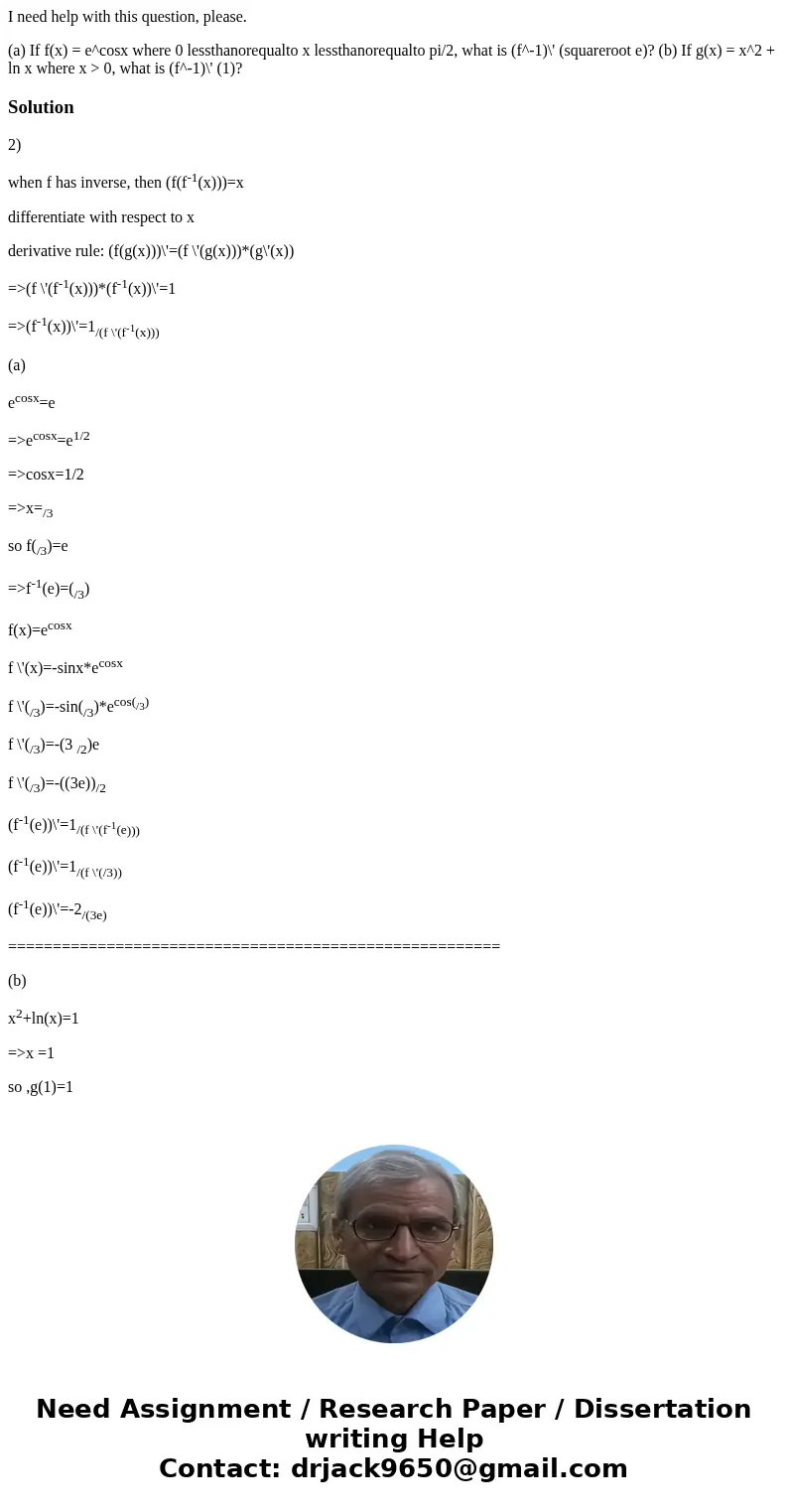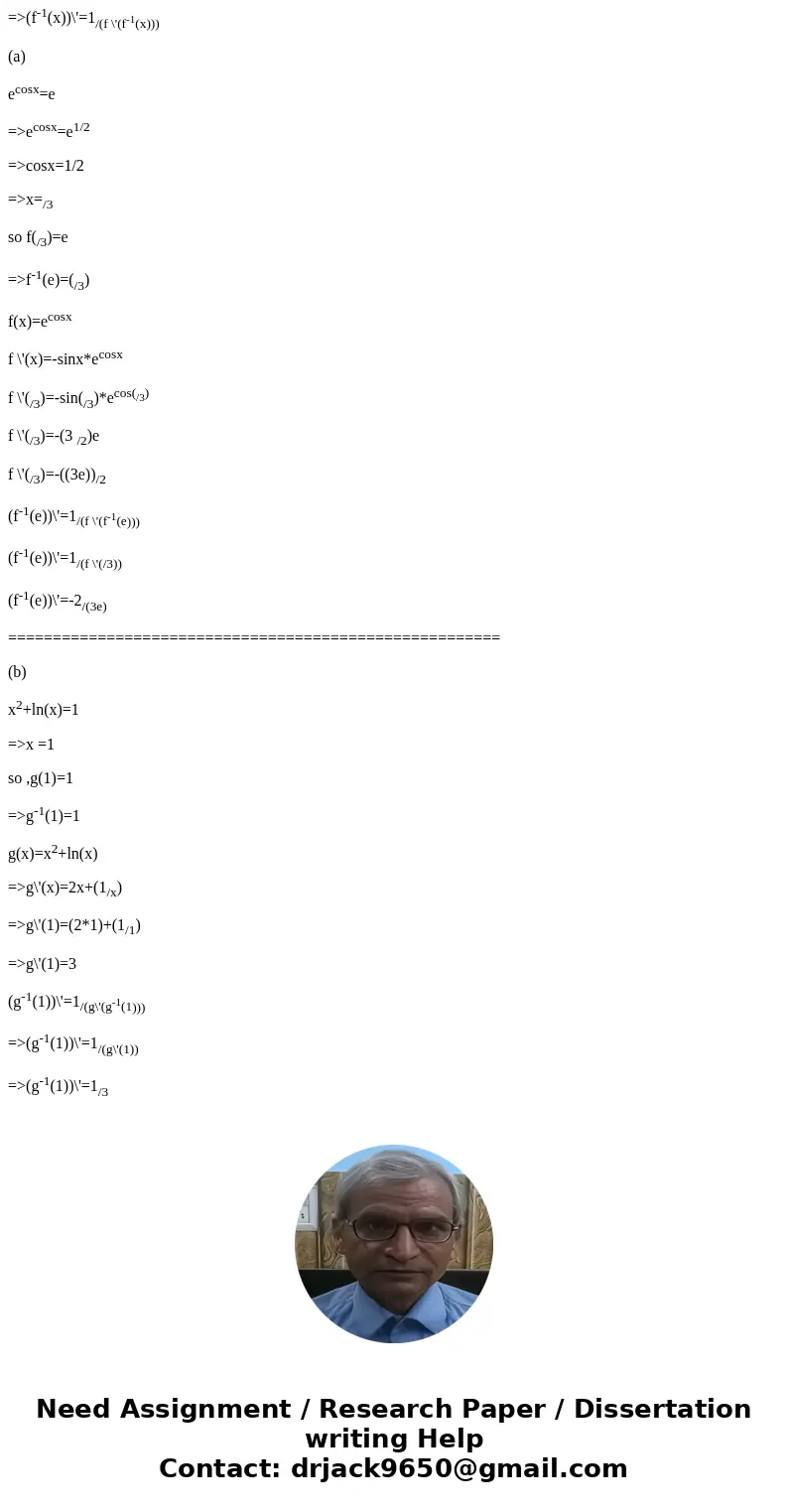I need help with this question please a If fx ecosx where 0
I need help with this question, please.
(a) If f(x) = e^cosx where 0 lessthanorequalto x lessthanorequalto pi/2, what is (f^-1)\' (squareroot e)? (b) If g(x) = x^2 + ln x where x > 0, what is (f^-1)\' (1)?Solution
2)
when f has inverse, then (f(f-1(x)))=x
differentiate with respect to x
derivative rule: (f(g(x)))\'=(f \'(g(x)))*(g\'(x))
=>(f \'(f-1(x)))*(f-1(x))\'=1
=>(f-1(x))\'=1/(f \'(f-1(x)))
(a)
ecosx=e
=>ecosx=e1/2
=>cosx=1/2
=>x=/3
so f(/3)=e
=>f-1(e)=(/3)
f(x)=ecosx
f \'(x)=-sinx*ecosx
f \'(/3)=-sin(/3)*ecos(/3)
f \'(/3)=-(3 /2)e
f \'(/3)=-((3e))/2
(f-1(e))\'=1/(f \'(f-1(e)))
(f-1(e))\'=1/(f \'(/3))
(f-1(e))\'=-2/(3e)
=======================================================
(b)
x2+ln(x)=1
=>x =1
so ,g(1)=1
=>g-1(1)=1
g(x)=x2+ln(x)
=>g\'(x)=2x+(1/x)
=>g\'(1)=(2*1)+(1/1)
=>g\'(1)=3
(g-1(1))\'=1/(g\'(g-1(1)))
=>(g-1(1))\'=1/(g\'(1))
=>(g-1(1))\'=1/3


 Homework Sourse
Homework Sourse